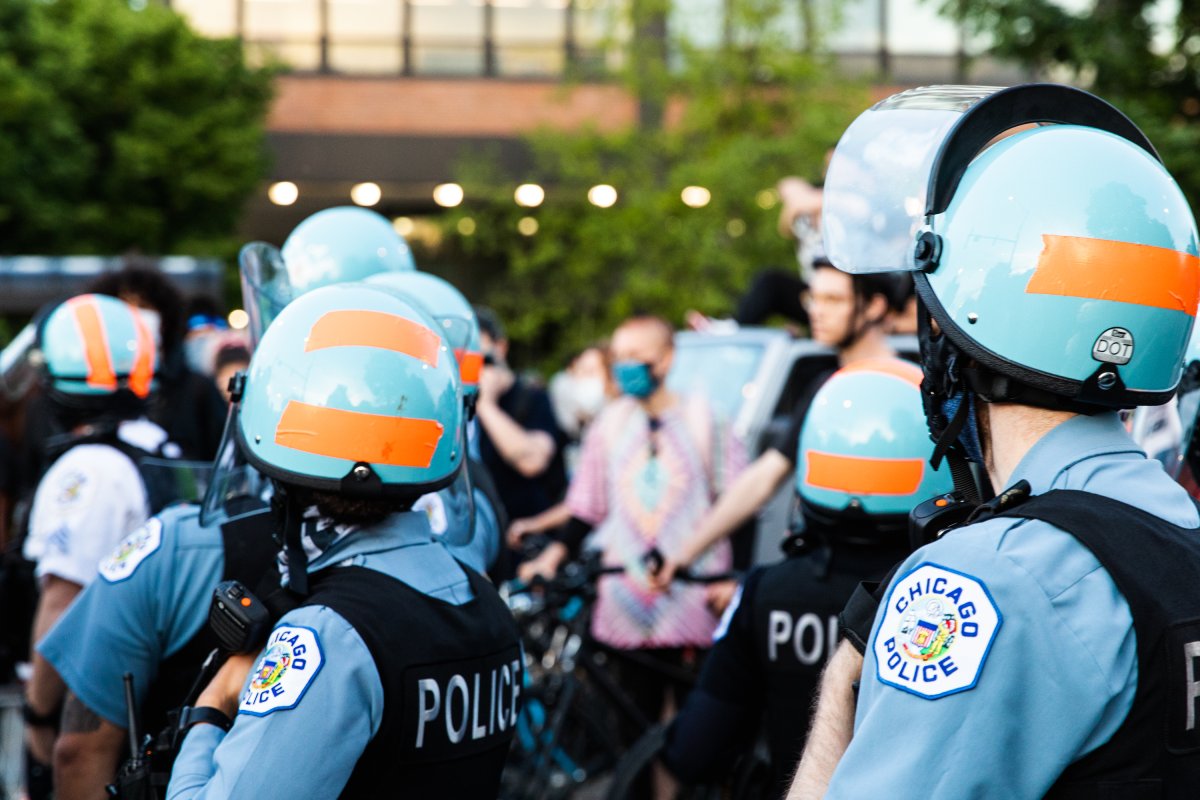As the "defund police" movement earns some policy wins across the country, a common refrain from those of us who understand the importance of a strong police force is that crime is going up. But some media outlets say we're wrong. Crime, it turns out, is actually going down, they say. They've got some data to back their statements up. But they're looking at the wrong data. And it feels intentional.
Police budgets are being cut across the country. Departments are losing specialty units that tackle gun crime. Cities are "re-imagining" what a police force should look like via a social justice lens developed by far-left activists who are holding cities hostage with frequent riots and protests.
But the public, generally speaking, believes crime is going up. Is that true? ABC News, linking to analysis by FiveThirtyEight, offered a succinct and shareable tweet-observation: "Many Americans are convinced crime is rising in the U.S. They're wrong."
The implications of this claim is pretty clear: Maybe now is the time to cut police departments. If crime is going down, defunding doesn't seem so drastic. Why are we lavishly funding police departments when crime, as a whole, is on the decline?
But to arrive at this conclusion, you must present a deliberately disingenuous interpretation of what we mean when we say we believe crime is indeed rising.
In their analysis, FiveThirtyEight points to a 2019 Gallup study showing about 64 percent of Americans believe crime is on the rise year-over-year. FiveThirtyEight says we're wrong to think that, pointing to a chart showing violent crime and property on the decline since the 1990s. Case closed, folks. Look at the chart!
But in the very same analysis proclaiming our naivety, FiveThirtyEight acknowledges that crime rates fluctuate on a yearly basis. That is an important detail given the very poll they cite to show we're wrong is rooted in year-over-year beliefs.
And, it turns out, we're right.
Murder rates have, in fact, been going up. The New York Times notes murder rates are up over 16 percent across 25 large cities compared to last year. Nashville saw a 43 percent increase, while Indianapolis is up 38 percent. Los Angeles and Atlanta saw modest increases, with Philadelphia and New Orleans jumping 23 percent and 36 percent, respectively.

Both the Times and FiveThirtyEight note that while murder rates are up, crime overall is down. But what in the world do they think people are talking about when we note that "crime" is going up?
Last month, Portland disbanded its municipal Gun Violence Reduction Team. Concurrently, the city saw its deadliest month in 30 years. KATU-TV notes that 15 people were killed last month, the highest since the 1980s, with one resident calling his neighborhood "a war zone with bullets flying all over."
After New York City Mayor Bill de Blasio announced a one billion dollar cut to the NYPD budget, the city's Anti-Crime Unit was disbanded. They were used to help get guns off the street. Consequently, the city has seen a surge of gun violence that included the death of a one-year-old boy. CBS News reports that prominent members of the Black community are begging the Mayor to bring the unit back.
Data from cities across the country make it clear: The violence people care about most is on the rise. Chicago saw 433 total homicides this year alone. Houston? 178. In just a 24-hour period in Seattle, there were at least five gunshot victims. By the time you read this Newsweek column, these numbers will be old; there will be an increase with more gun victims.
The context in which our views on crime are developed matter. When Portlanders note crime is surging, they're not talking about pickpockets in Lake Oswego. When New Yorkers worry about crime, they're not concerned with jaywalking in Westchester County. Indeed, when you're in the middle of a pandemic, where people are working from home, those kinds of crime will naturally decrease. They're talking about violent crimes, like murder, in Portland and New York.
Of course, we're not just looking at murder. For weeks now, we've seen lawlessness run rampant in major American cities. Minneapolis saw businesses burned to the ground. New Yorkers saw dozens of looters stealing from high-end shops in SoHo. Portland still sees nightly clashes, as rioters try to burn down a federal courthouse. In Seattle, marauding mobs march through the city, destroying every Starbucks in sight. And these are crimes that seldom result in arrests.
If you completely redefine what people mean when we say crime is going up, sure, you'll be able to gloat with a gotcha tweet about how we're wrong to feel how we do. And, intentionally or not, it helps fuel the "defund the police" movement. But a more honest look at the numbers suggests not only are we right to be concerned, but that it's dangerous to target cops with budget cuts.
Jason Rantz is a frequent guest on Fox News and is the host of the Jason Rantz Showon KTTH Seattle, heard weekday afternoons. You can subscribe to his podcast here and follow him on Twitter @jasonrantz.
The views expressed in this article are the writer's own.
Uncommon Knowledge
Newsweek is committed to challenging conventional wisdom and finding connections in the search for common ground.
Newsweek is committed to challenging conventional wisdom and finding connections in the search for common ground.
About the writer
To read how Newsweek uses AI as a newsroom tool, Click here.






